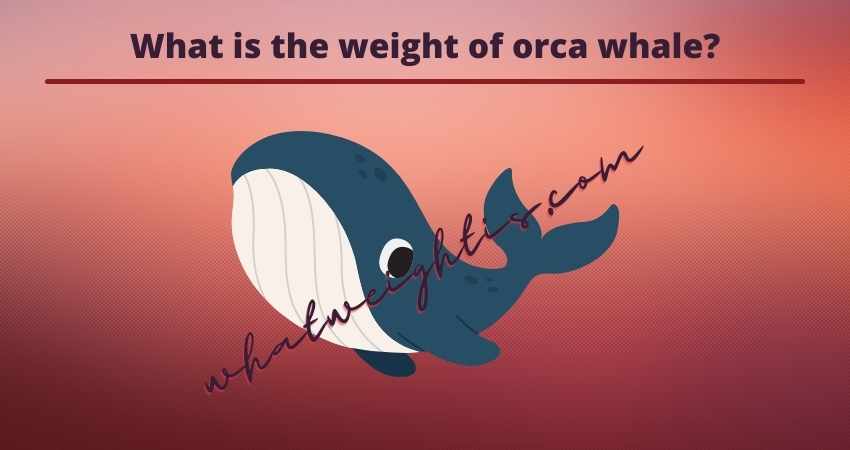The Earth’s oceans, which are vast and mysterious, are home to many amazing species. One such organism is the orca whale, known as the “killer whale.” The orca whale is a fascinating aquatic mammal with black and white markings, large size, and cognitive ability. The subject’s weight adds to its majesty. This page discusses the orca whale’s weight, its importance, its causes, and its effects on marine ecosystems.

The Value of Statistics
Orca whales weigh 8,000 to 12,000 kilograms (17,600 to 26,400 pounds). However, some individuals have reached 22,000 kilos (48,500 pounds), demonstrating the extraordinary variety of weights in this species. According to the research, the orca is one of the largest predators in the marine ecosystem.
What is the weight of blue whale heart?
There are various weight-influencing factors.
Biological and environmental variables affect orca whale weight. We shall analyze numerous key outcome determinants in this analysis.
Age and Gender: Like many species, orca whales display sexual dimorphism, with females being smaller than males. Male adult orcas are 20–26 feet long, while females are 16–23 feet long. Men also weigh more than women. Weight tends to rise as people age since they have more time to accumulate resources and expand.
The diets of orcas determine their weight. Since they prey on fish, squid, seals, and sea lions, these apex predators are known for their diverse diets. Different killer whale (Orcinus orca) populations have different dietary preferences, causing body weight swings due to prey abundance.
Habitat and Migration Patterns: Orcas inhabit whole oceans, from the polar to the tropical. Migration patterns can affect weight since animals must travel far to find food and breeding grounds. These organisms can strategically control their weight in response to resource availability across regions due to their migratory nature.
Orca weight depends on health and reproduction. Illness, injury, and parasitic infections cause orcas to lose weight. These events demonstrate the complex relationship between orcas and their ecosystems. Female reproductive status also affects weight since pregnancy and lactation require more energy.
The ecological relevance of a phenomena or entity is its impact on an ecosystem. Included are various jobs and functions
Orca whales are too heavy to quantify. These beautiful species maintain marine ecological homeostasis, making them apex predators. Orcas regulate varied marine species populations, preventing overcrowding and preserving biodiversity. Marine organisms’ ecological importance emphasizes the complexity of maritime ecosystems, emphasizing the need to understand and protect them.
Human interactions and conservation research is important because it explores how human activity affects natural resource preservation. This field studies how human behaviors, emotions, and decisions affect
Orcas have long fascinated humans, who have also abused them. Traditional hunting methods caused the extinction of several orca populations. The practice of confining orcas for entertainment has raised ethical concerns and sparked discussions about their well-being.
Orca preservation and conservation have increased in recent years. Protecting many species’ natural habitats, controlling human activity in these ecosystems, and encouraging responsible tourism have received attention and support. Organizations and governments worldwide are working to protect these amazing species and marine habitats.
The Accountability Burden
Understanding the orca whale’s weight beyond physical quantification and humanity’s significant obligation to protect them and their ecosystems. Human activities and decisions have far-reaching effects as we learn more about marine ecosystems and orcas.
Conservation efforts preserve marine ecosystems’ complex web of life, not just individual species. Our role is to make well-informed decisions that emphasize the wellbeing of these organisms, both as individuals and as important parts of the ecosystems on which we all depend.
To conclusion,
The orca whale’s weight symbolizes its grandeur, strength, and our duty to protect it. As we marvel at these massive marine creatures and explore their complicated lives, we must recognize their significance beyond their body. This topic explores our deep understanding of nature, our connection to the oceans, and our commitment to protecting life on Earth. The orca’s weight symbolizes our collective activities and their far-reaching effects. It forces us to make decisions carefully and thoughtfully to preserve the awe-inspiring nature of these magnificent individuals and their oceanic environments.

